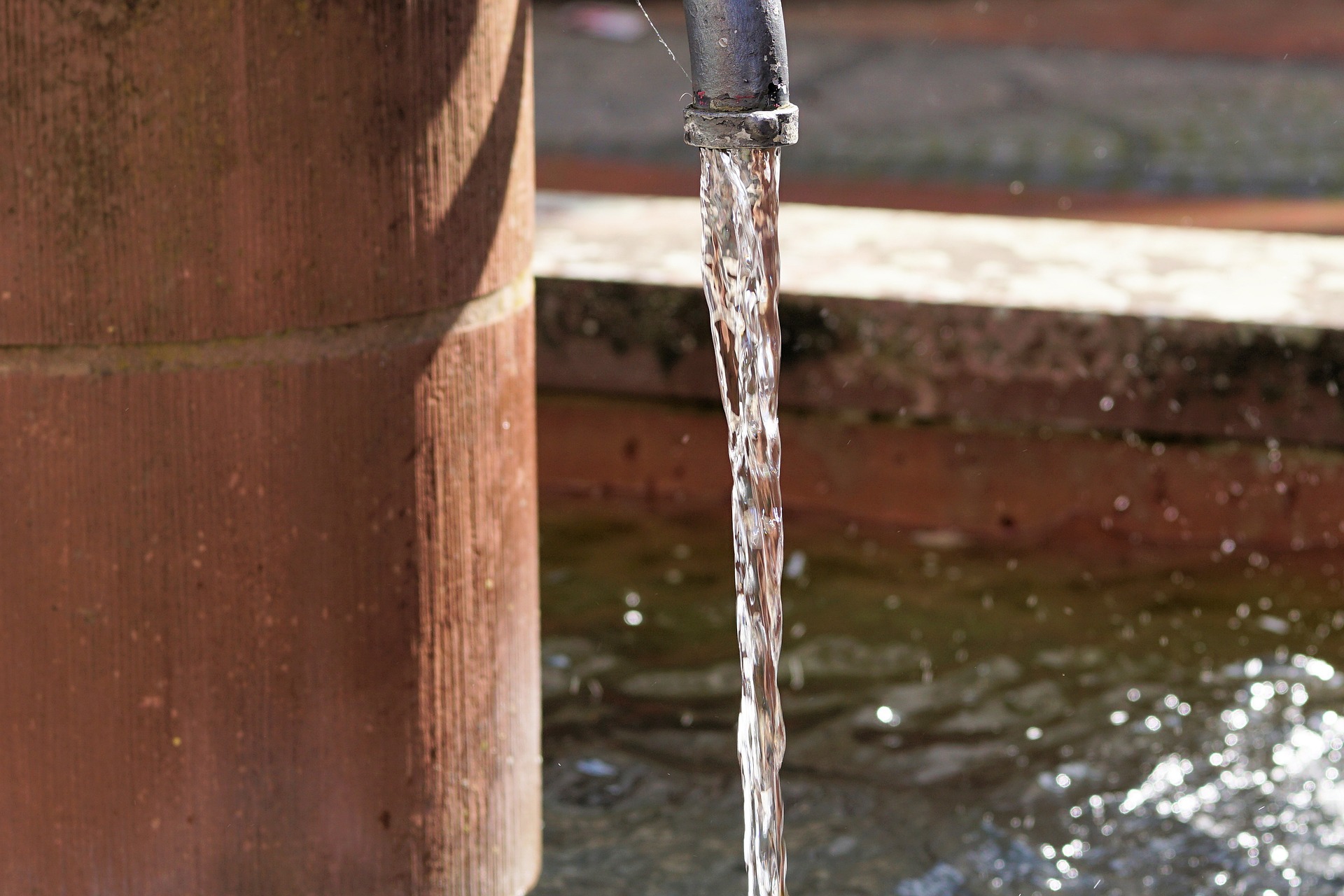 This story originally ran in NACCHO’s Essential Elements.
This story originally ran in NACCHO’s Essential Elements.
Americans currently use about 100 gallons of water per day per person. In Cape Town, South Africa, extreme drought has limited residents to just 13 gallons of water per day since February 1. Depending on rainfall over the coming months, water taps in households and businesses may shut off entirely in this popular tourist destination, one of the wealthiest cities in Africa.
A similar water crisis in cities across the United States is increasingly conceivable, as susceptibility to severe drought intensifies due to population growth and climate change.
In honor of World Water Day on March 22, the National Association of County & City Health Officials (NACCHO) examined how local health departments are preparing for this eventuality.
NACCHO spoke with environmental health officials at the Southern Nevada Health District (covering Clark County, including Las Vegas) and the San Francisco Department of Public Health on the steps they are taking to prevent water shortages in their jurisdictions.
What can we learn from Cape Town’s drought that we could apply locally in the case of a similar crisis?
Southern Nevada: We can learn that there is still a lot of division between water management and water emergency preparation. Ultimately, although Cape Town’s water shortage would have been inevitable, “Day Zero” could have been pushed back further if infrastructure development projects had started sooner and had more time to be completed. Since it is difficult to fund large-scale preparedness projects without full public support, it’s necessary for us all to openly acknowledge that capital investments should not wait until the eleventh hour.
 San Francisco: Even a seemingly water-rich city can get caught off guard in extended drought. San Francisco has been proactive as a city to ensure resiliency and drought planning, but in addition to implementing city-wide programs, the San Francisco Department of Public Health (SFDPH) understands the need to be a leader in reducing water use across its own facilities. With the rebuild of our hospitals, SFDPH facilities have implemented substantial water savings in the last several years. Air conditioning systems in the new Zuckerberg San Francisco General Hospital are “closed-loop,” so water used for cooling is reused rather than wasted. Auto-on water faucets powered by a long-life battery employing a spinning mini-turbine reduce water consumption throughout the facility. Further, landscape management best practices at SFDPH facilities include drought-tolerant landscape design and installation of water-efficient irrigation systems.
San Francisco: Even a seemingly water-rich city can get caught off guard in extended drought. San Francisco has been proactive as a city to ensure resiliency and drought planning, but in addition to implementing city-wide programs, the San Francisco Department of Public Health (SFDPH) understands the need to be a leader in reducing water use across its own facilities. With the rebuild of our hospitals, SFDPH facilities have implemented substantial water savings in the last several years. Air conditioning systems in the new Zuckerberg San Francisco General Hospital are “closed-loop,” so water used for cooling is reused rather than wasted. Auto-on water faucets powered by a long-life battery employing a spinning mini-turbine reduce water consumption throughout the facility. Further, landscape management best practices at SFDPH facilities include drought-tolerant landscape design and installation of water-efficient irrigation systems.
What is your health department doing to prepare for a massive water shortage in your jurisdiction?
Southern Nevada: Clark County has eight valley-basins that rely entirely on ground water, and two valley-basins that rely partly on the Colorado River. These separate basin sources have allowed our county to conduct emergency bulk water hauling, and since 2013, we have overseen bulk water hauling during ten water shortages and water quality issues within our county. During these events, our office focuses on evaluating and planning against water contamination during transport and delivery, while also ensuring stakeholders are aware of public notification requirements should an issue arise. In addition, we discuss emergency response capabilities and scenarios with water system managers during each of our triennial sanitary surveys.
San Francisco: Our Environmental Health Branch (SFDPH-EHB) collaborates closely with our drinking water provider, the San Francisco Public Utilities Commission (SFPUC). We support their work of diversifying supplies and improving resiliency, and we foster the “fit for use” policy, ensuring water quality appropriately matches water use. Our staff have expertise in water conservation and water quality issues, and they continually review emerging scientific, medical, and public health literature relevant to drinking water and water reuse. SFDPH-EHB has implemented or supported SFPUC’s local groundwater supply project, rainwater harvesting initiatives at the household and commercial scale, laundry-to-landscape irrigation policies for households, and onsite water treatment systems providing water for toilet flushing and other non-potable uses.
How can local health departments contribute to and support federal water protection efforts from the Centers for Disease Control and Prevention (CDC), the Environmental Protection Agency (EPA), etc.?
 Southern Nevada: Local health departments have at least a fundamental understanding of the laws and missions that agencies like CDC and EPA champion. Our health district strives to be involved in as many community water discussions as possible, and as potential grassroots organizers, we can host and organize community town hall meetings about drought, water quality issues, and water emergencies. Although these meetings do not ultimately require us to fund any one resolution, our staff have seen the advantage of bringing scientific and regulatory understanding to our communities.
Southern Nevada: Local health departments have at least a fundamental understanding of the laws and missions that agencies like CDC and EPA champion. Our health district strives to be involved in as many community water discussions as possible, and as potential grassroots organizers, we can host and organize community town hall meetings about drought, water quality issues, and water emergencies. Although these meetings do not ultimately require us to fund any one resolution, our staff have seen the advantage of bringing scientific and regulatory understanding to our communities.
San Francisco: San Francisco has been a leader in promoting the use of on-site alternate water sources such as rainwater harvesting for irrigation or blackwater treatment and reuse for toilet flushing. This program is a critical component to management of our city’s water portfolio and ensuring resiliency in the case of shortages or drought. Since 2012, SFDPH-EHB has enforced Article 12C of the San Francisco Health Code to ensure the safe installation, operation and maintenance of onsite non-potable water systems in the city. Our staff also participate on the National Blue Ribbon Commission on Onsite Non-potable Water Systems, a collaborative project spearheaded by the SFPUC with funding and support from the US Water Alliance, the Water Environment & Reuse Foundation, and the Water Research Foundation.





